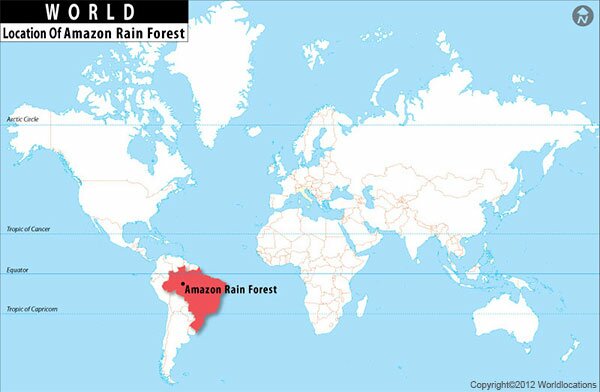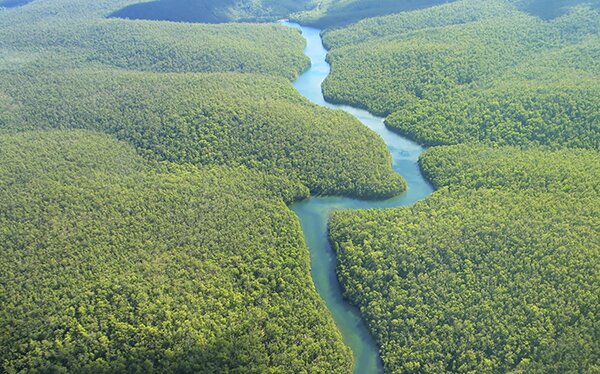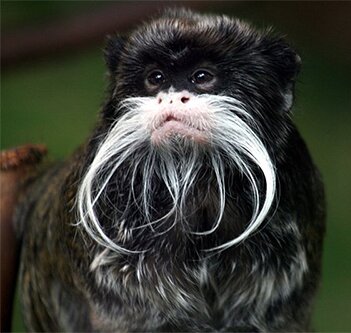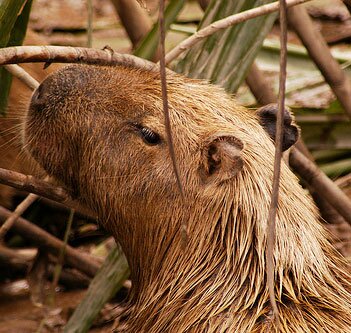
The Amazon is one of the most famous travel destinations in the world, its very name synonymous with wilderness, nature, and adventure. It's no surprise that this natural wonder of the world attracts so many travelers each year--it just may be the ultimate ecotourism experience! Here are some fascinating facts about the incredible Amazon:
1. One in ten known animal species on Earth exists in Amazonia.
Though the Amazon covers a relatively small portion of the Earth's surface, it is extremely rich in biodiversity. Many of its species are so highly specialized that they live nowhere else in the world, and we are continually discovering new species that we didn't previously know existed. For example, since just 1990, seven new species of monkeys and 12 new species of fish have been identified!
The rainforest is also home to the smallest monkey in the world, the pygmy marmoset, and the largest eagle in the world, the harpy eagle. Some other interesting animals of the Amazon are capybaras, sloths, pink river dolphins, and emperor tamarins.

2. The Amazon River is the largest river in the world by volume, with a total flow greater than the top ten rivers worldwide combined.
One-fifth of the world's entire fresh water supply is found in the Amazon Basin. It contains more fish species than the entire Atlantic Ocean and the largest number of freshwater fish species on Earth, including more than 25 species of piranha, electric eels, and pirarucus, the largest freshwater fish.
3. The Amazon is both the "lungs" and the "thermostat" of our planet.
The Amazon rainforest's trees and other plants continuously recycle carbon dioxide into oxygen, producing 20% of the world's oxygen supply. It is also one of the world's primary carbon reservoirs. Through the sequestration and storage of carbon dioxide, the rainforest acts as the world's thermostat, regulating temperatures and global weather patterns.

4. The Amazon rainforest helps us fight cancer.
Of the 3,000 plants the U.S. National Cancer Institute has identified as useful in the treatment of cancer, 70% are found only in rainforests. Twenty-five percent of the active ingredients found in the cancer-fighting drugs available on the market today come from organisms found only in the rainforest. And only about 1% of rainforest plants have been examined for their medicinal properties.
5. There are more than 200 indigenous groups still living in the rainforest – some of which have never had contact with the outside world.
Many of these indigenous groups still live the centuries' old traditions of their ancestors, eschewing modern technology in favor of a life more in tune with nature. Some communities have opened their doors to visitors, starting lodges and tour companies to share their knowledge of the Amazon with travelers.

6. The Amazon rainforest represents more than half of the remaining rainforests in the entire world, and it's shrinking.
Once, rainforests covered 14% of the earth's land surface. Now, they cover 5-7%, and that area is decreasing rapidly. Scientists predict that if deforestation continues at the current rate, the last remaining rainforests on our planet could be consumed in less than 40 years!
Do your part to protect the rainforest by traveling sustainably. Many hotels participate in reforestation projects, and even get their guests involved with their sustainability efforts.
Are you ready for your Amazon adventure yet?
 |
 |


